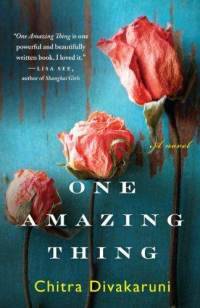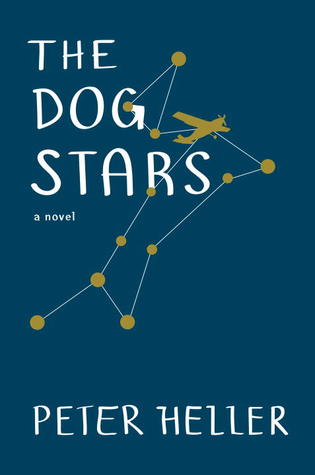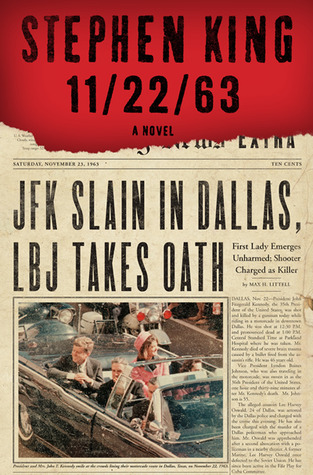Now enough patting myself on the back because these 2 books are ones for which I am embarrassingly behind. This is a report on the two novels I read on my summer vacation....at the end of JULY! For the record, I focused on catching up on more recently read titles so I wouldn't get further behind, but still.
Enough excuses. Here we go....
I chose to read Arcadia by Lauren Groff on my summer vacation for 2 reasons:
1. I was going to be in upstate NY not too far from where this novel was set
2. I really liked Groff's The Monsters of TempletonI grabbed the book to read without even looking into its plot. I normally wouldn't do this, but the 2 reasons listed above seemed enough of a guarantee that it would be perfect. And then, I began reading and got VERY worried. The novel is set entirely (sans one small section) on a commune, and I hate hippies.
Thankfully, I had nothing to worry about. Even though I really dislike hippies, I very much enjoyed this novel. That is a testament to Groff's richly drawn narrator, lyrical writing, and compellingly haunting story.
Here is the plot set up. Arcadia is told completely through the eyes of "Bit" Stone, the first child born to the people who started an upstate NY commune, called Arcadia, in the late 60s and goes through 2018 when Bit is an adult. We follow the rise and fall of the commune through Bit's eyes. The story takes us through Bit's life and even into his time as a city dweller and father. The story that spans into our future has Bit returning to the almost deserted commune to care for his ailing mother and for another reason I will not divulge.
That is really all you need to know about the plot because as I mentioned above, the commune is not why you will or will not like this book. Bit is the reason you will love this novel. Bit is just plain awesome, in the truest sense of the word. His sense of wonder at everything around him is amazing. For many years Bit chooses not to speak, but he is sharp and observant. Since we are privy to his thoughts, we do not notice his silence to others as much. To us, he is loquacious. He tells us everything he sees, experiences, smells, touches, hears, etc...
Because the story follows Bit through his life, this is a coming of age story. And since Bit comes of age in a commune, when he goes to live in the city after the commune's collapse, he needs to come of age some more. In fact seeing how all of the kids from the commune do in the real world was quite interesting.
The details on the setting here are rich. Again because of Bit we get a full, five senses picture of the commune as it grows, prospers, falters, fails, and starts to come back again.
Since it is a commune, they are also a lot of eccentric characters. Watching how their differing personalities come together and clash is a great part of the story too. The characters alone (and they are characters) drive the story at times.
I also appreciate Groff's overall message about communal living, which I took to be that while it is a good idea, it is hard to sustain on such an ambitious scale. We see this at the end of the novel, when all is quiet on the property, and very few are left, it goes back to being idyllic.
I was completely captivated by this novel because of Bit. So if you pick up this novel and don't fall into his narration by the end of the first chapter, this book is not for you. Even if you love reading about communes, you must fall hard for Bit you are going to enjoy this novel.
By the way, Arcadia just came out in paperback. It is also on quite a few Best of 2012 lists.
Three Words That Describe This Book: coming-of age, communes, haunting
Readalikes: Brady Udall's The Lonely Polygamist is very similar to Arcadia both in setting [instead of a commune it is a polygamist's home], they share a young, troubled narrator, and both authors have a lyrical writing style. Click here for my full review.
The way the story is told, talking about a larger movement through the child's perspective only, is very similar to the way "the slowing" is tackled in The Age of Miracles by Karen Thompson. Click here for my full review.
Canada by Richard Ford is also a coming of age story with a haunting tone. Click here for my full review.
Finally, for another title that is richly detailed, haunting and lyrical as well as being set in an against the mainstream community, I would also suggest one of my favorites books I read last year, The Known World by Edward P. Jones.
Finally, NoveList suggests: The Irresistible Henry House by Lisa Grunwald: "Raised unconventionally, both Henry House (raised by a series of home-ec students in the 1940s and '50s) and Bit Stone (born on a commune in the '60s) face unique challenges as they find their way in the outside world."
Next up is The Red House by Mark Haddon, which I picked to read on vacation because it is about an extended family getting together for holiday in a shared vacation house. Enough said there. Also, like with Groff, I have enjoyed Haddon's previous books.
Here is what I said about The Red House when I presented it at Book Lovers Club on July 31, 2012:
This is the newest novel by the author of The Curious Incident of the Dog in the Night-Time. Here Haddon imagines an estranged family: 2 grown siblings and their spouses and kids renting a house in the Welsh countryside for 7 days. Instead of chapters the novel is divided into the days of the vacation. Within each day the point of view skips around to every character. The changes in point of view can be jarring since they are not marked in any way; the point of view will simply change after a small break in the text. The minor confusion that occurs as a result is worth it, as you get to see everything from each character's point of view. These are troubled people, but they are all troubled in a different way. When thrown together, there are trials and tribulations, but also moments of revelation and joy. The family vacation will leave permanent scars on the group, but it will also bring them all closer together. This is a great read if you are preparing for an extended family gathering.Sometimes when forced to hone the essence of the appeal of a novel in only a paragraph, it really works. Here is a bit more though.
The chapters are each day. This is why the point of view changes are only marked by a double return between sections of text. The time spent on each person's point of view is varied. Sometimes it is a few pages, other times it is only a line or two. I liked it because it echoed the chaos of the story. 2 families who were basically strangers to each other were thrown together in forced intimacy. The constantly shifting narration helped to mimic a bit of the chaos and unease being felt by the characters.
Speaking of the characters, since this is a relaxing vacation in the country, the novel is not about what happens on their vacation, but rather what happens to each of them psychologically and within the bounds of their interactions with each other. It is one giant character-study of novel, which I liked, but if you are a plot driven reader, this might not be the book for you.
By the way, the age range of the characters is from 8 to middle aged. Some of my favorite parts were when the pov abruptly switched to the little boy. He was very realistic.
Also I only hinted at this in the paragraph from Book Lovers but the revelations and tribulations are not tragic, but they are quite dramatic. It makes for a big climax, finale.
There are a few strong YA narrators here, so this would also be a good adult book for young adults option.
Overall, the novel is funny, touching, moving, and believable. The pace is steady and builds as the week goes forward. It was a fun read that I would highly recommend to pair with a longer visit with extended family. So the holidays would probably be a good time for many. It will make your crazy family look utterly normal and give you some chuckles.
Three Words That Describe This Book: family drama, shifting point of view, character centered
Readalikes: Although there are no vacations in it The Particular Sadness of Lemon Cake by Aimee Bender is similar to The Red House in that both are moving, character centered stories that deal with family secrets. They also build to dramatic, but not tragic finales. Click here to see my post from when the BPL book discussion group read Bender's novel.
Like The Red House, Seating Arrangements by Maggie Shipstead also came out this summer. Here the setting is a family wedding in New England. If you liked the family drama parts of The Red House, this would be a good suggestion.
A Long Way Down by Nick Hornby is also an adult book for young adults option, that is quite dramatic (four strangers find themselves on a roof top on New Year's Eve and all plan to jump) and told in multiple points of view.




















